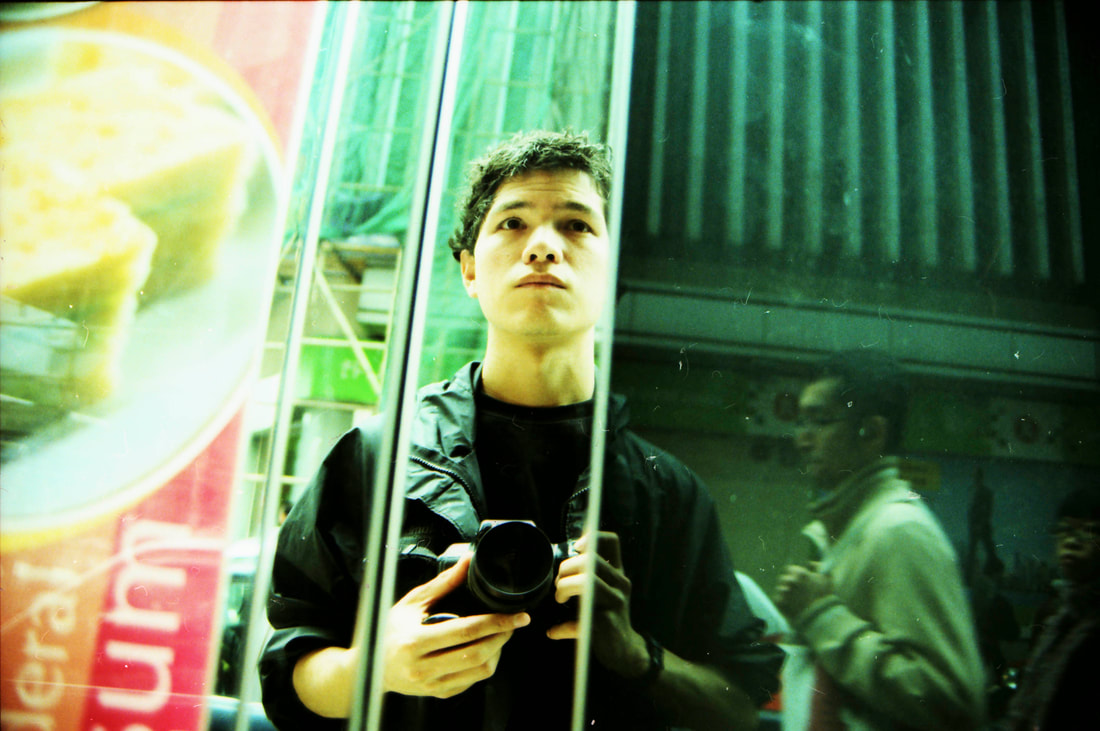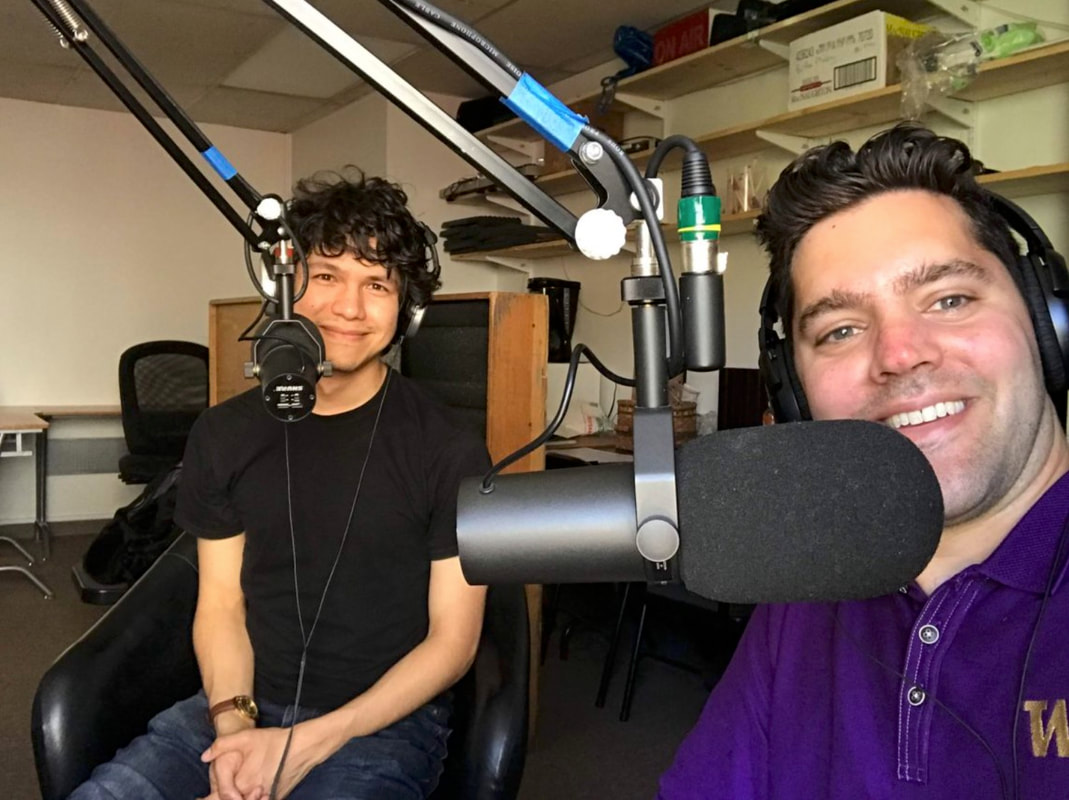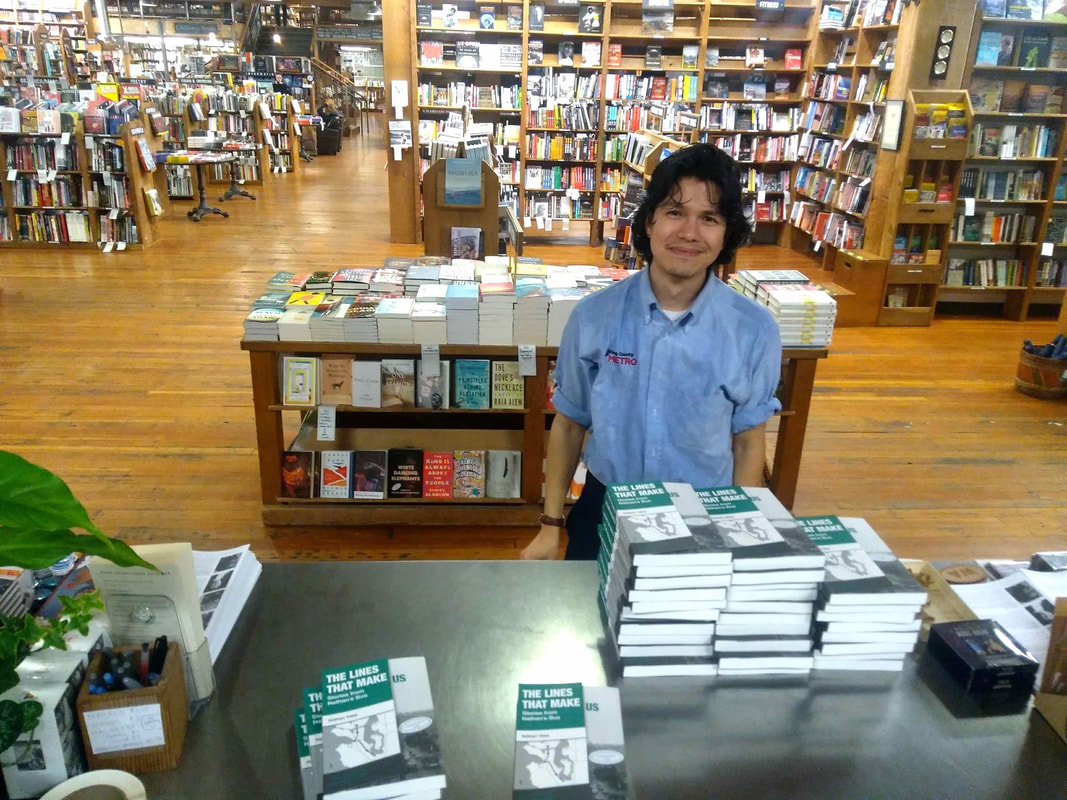|
I regret writing about him the way I did, here. Scoffing about his bravado for a chuckle. Shouldn't I know by now that men are among the most fragile of creatures, who at every turn are taught* they must vigorously pretend otherwise? Today I know that Anger is simply Hurt held in for too long, and that "fronting," as it were, is merely a means for concealing insecurity.
Four years ago, my reaction to that highly imperfect method would be to point and laugh. Isn't it so much easier to judge people when everything in your life has gone well? Ah, for the days when things were so simple. --- It is possible, sometimes, to get through adolescence without anything going hugely, catastrophically wrong in your life. (Any teenager would disagree, but I'm talking about actual major life events here.) It's even possible to make it through most of your twenties– sometimes all of your twenties– without any of your goals being sucked out from under you, without any of the irrevocable thudding blows that crush your ideas of a future with unforgiving permanence. It isn't just that life is unexpected, in the sense of the famous Yiddish proverb.** It's that it doesn't play by your rules. Eventually the realization will happen, and when the blows come along to break you, I say take your time reacting. Respond with intention. You're on the cusp of determining what may very well be the mental framework of the rest of your life. "There are no second acts in American lives," Fitzgerald famously wrote, foolishly (he would later retract the statement). The question of who you'll be in your Second Act is less a question of what you do than how you think. Revered philosopher-filmmaker Terrence Malick pointed out in a 1979 Sight and Sound interview, "The movies have kept up a myth that suffering makes you deep. It’s not that way in real life, though, not always. Suffering can make you shallow and just the opposite of vulnerable, dense." How you choose to address the hurt, the vulnerability, the confusion... These are the quandaries for which there are as many solutions as there are people. Some become bitter, nursing a grudge against the world. Others turn their hatred inward. Still others search for a lightness that's stronger than the light they had before, moving toward that place where you can be at peace not knowing the answers. --- For me it was a series of calamities. You know one of them. The details matter less than the sensation; being lost in a life that was once familiar, which you used to understand but seems now to have all new rules. I don't know much, but I do know this: nothing will humble you more than having your concept of a just universe destroyed. The cocksure confidence you didn't know was annoying, gone like chaff in the breeze. The grief. The grief that blinds you from what you'll realize years later, and still feel guilty admitting: this is the part where you became a better person, at the expense of stupid gigantic loss, loss for which you'd give up your newfound wisdom in a heartbeat to have redacted. Where you tried hard and succeeded without noticing. Don't I wish all those young people were still alive? For myself, I've become softer. More forgiving. Life is more extreme than I thought it was. All these humans are struggling just like you, to be loved, respected, to not be lonely. They struggle mightily in their imperfect ways, and they deserve to be forgiven endlessly. Don't get me wrong: I'm still the person I was before, who thinks the Man Game is silly, that overblown egos and pretending to be cool are a waste of time. I stand by every word of my Man Game monologue as written in the above-linked story. But the need to condescend has subsided. It's easier somehow, to understand where they're coming from. "Stop trying so hard, bro," I thought to myself when I saw folks like him in 2015. "Get over yourself." Now, the line in my head tends toward something like, "You don't need to try so hard, bro. You're okay just as you are." You were a child once and you have feelings and passions and hobbies, like the rest of us. You don't need to try to convince the world otherwise. --- He got on my bus the other day, looking rather different than before. Gone was the anxious bravado; he relaxed now with an air of calm, like me, that manifested in his apparel choice as well as demeanor. Just a baseball cap and plain T-shirt today, with jeans that actually fit. He was like the young lady who used to wear a lot of makeup, who's prettier now just being herself. "There he is," I said. "Hey!" "How's it going." He pounded my fist slowly. "You remember me?" "Yeah, my buddy from California!" "Damn, dude," he said, pausing. His face opening up in a heartfelt grin, the sort of unironic expression that stops time, even if briefly. "Thank you, bro. Hey listen, I got a spot now. I got a job, and I got a spot, an apartment just down on uh, Cloverdale." "Man, I'm so happy for you! You're doin' great!" "Yeah, better than I was before, huh?" He gestured back at the middle-aged African-American woman he'd been sitting with. "S my mom. I'm treating her!" --- What was I thinking, writing him off as a caricature before? Doubting him? Even if he postured more at the time... People grow. They can be many things at once. I was grateful to learn a few more of his sides. This blog would be missing something if its only record of him was as a wannabe gangster whose most memorable trait was pretending to be from a hard neighborhood. Had he grown? Or was it me, learning a little more, how to see? Did we perhaps both "go through some stuff," age-alike contemporaries that we are, and come out the other end similarly chastened, humbled, and energized? Hopefully all of the above. -- *For more, search out landmark feminist writer Susan Faludi's gigantic Stiffed: the Betrayal of the American Man, about society's demand that men have all the answers, know how to fix everything, be heroes, and exist above society rather than take part in it; about how nearly all men feel they cannot live up to those ridiculous demands and feel emasculated as a result; and about how feeling emasculated doesn't sit comfortably with a gender that's been taught to hide its emotions, and to pretend to not have any problems rather than dealing with them. **Mann Tracht, Un Gott Lacht. "Man plans, God laughs." Best popularized by Woody Allen, who paraphrased it as, "If you want to make God laugh, tell him your plans." Above image: That's me in Hong Kong, circa 2011, on Nathan Road. Yes, there really is such a place!
6 Comments
Ideas linger longer on summer nights, and so too do memories. They reach deeper, the gentle hothouse surge of our past coming forth, that much closer to touch.
As children we looked upward more. We saw objects and people as monuments, looming large against the sky. Is it any wonder that silhouettes still catch our eye, and that we don't tire from seeing big structures standing tall against the quiet blue dome? That's the child inside. Our default was wonder then, an awe separate from fear or joy; before emotion one must simply marvel at the miracle of existence. Look at any infant's face. In their gaze is everything and nothing, nothing but the purest essence of how to see, frequently unlearned over life but never completely forgotten. Tonight the 7 emptied out early, and I drove the Prentice Street neighborhood loop alone. Magic hour is always beautiful, but there is a specific moment within those golden minutes when everything comes together. It is less a visual highlight than an interior shift, an awakening. Here was a smattering of companions, an extended family maybe, sitting outside post-dinner on the stoop, on lawn chairs, the kids playing on grass and pavement. A little Filipino girl with a fluorescent neon green glowstick worn as a necklace around her chest: could she have known just such a glowstick lived in my memory, on an evening with these same colors, when I was her age? The park of my youth was lit just as this informal street plaza was, white fluorescents for the baseball fields, kind of eerie but kind of festive. I remember cracking into brightness the glowstick my parents gave me and gazing up at the stadium lights in the same way I now looked at the streetlamps and telephone poles, noting the contrast between their uniform dark hue and the soft gradient of post-sunset light behind them. I turned the corner from Prentice onto 64th, high on a hill in the quiet suburbs of old Seattle, land falling away to the north and east, the panorama of Lake Washington and Bellevue sitting pink and blue in the vast evening air. Look at those colors, the voice inside me said. I slowed to a stop. The sky was the color of childhood, yellow fading upward into evening indigo, the golden yellow orange that shifts imperceptibly into Yves Klein blue without a hint of green, as only sky can do. Look at that cerulean hue in the middle distance, right where it melds with the yellow, and look at that pink wisp of a cottonball cloud with the light blue contrasting behind it. Lower down, the telephone poles again, silhouetted by pale gold. The only thing more beautiful than a sunset is the period after a sunset. It is in those moments, when light is becoming a shared memory, that the aforementioned moment of clarity takes place. It doesn't happen every night, and it's unrelated to how beautiful the sunset is. But deep inside a certain sometime, you'll feel a silent whisper coursing through your soul, warmly. It is made up of two things: That part after a sunset that feels oddly like a predawn sunrise, the time before the world starts, when every aspect of existence is drenched with possibility... And the pathos of fading twilight, a comforting darkness, but tinged with death and endings and the enveloping finality of all things. There is a moment where it makes sense to mix these moods, to almost feel that they might in some strange way be the same. That the concept of growth, plot, trajectory, sequence- time- requires both of the above; the first to give it shape, the second to give it dimension. In the quiet flash of certain evenings, when twilight becomes dawn and no other time seems ever to have existed, for that brief glimpse of a moment... we understand, and a well-being courses through us like never before. It is, all of it, good. They are glorious and terrible, these two halves, and they are equally right and necessary and part of life. They add up to goodness. We have all we need. That's University of Washington Professor Jeff Shulman on the right, whose influential podcast has been featured on The New York Times, Los Angeles Times, and USA Today. Dr. Shulman interviews various local luminaries about what Seattle’s economic and population growth means to them. He's talked with everyone from Attorney General Rob McKenna to KC Executive Dow Constantine to musical artist Draze to Stu Tanquist, a resident in Tent City 7(!).
So that's who Jeff Shulman is. You've probably heard of the guy, honestly. As for that guy on the left, I have no idea... Here we are chatting it up. Enjoy! We've grown accustomed to requiring a certain dose of cynicism in our fictions in order to find them believable. “Few people have the imagination for reality," Goethe wrote. Because truth can be beautiful in ways we have trouble daring ourselves to believe. Said Mark Twain: “Truth is stranger than fiction, but it is because Fiction is obliged to stick to possibilities; Truth isn’t.”
I preface this story with these thoughts because I want you to know it really did happen. Yes, we conceive of awe as the appropriate emotional reaction to that which is extreme; but what about that which is happy? Doesn't that equally warrant our reverence, our admiration and respect? Readers of my book will know of Avery, whose story features prominently in the book's delicate thematic organization of a series of seemingly unrelated stories. It's included for several reasons– we touch briefly on my filmmaking background; we explore a character who rode my bus not once but dozens of times; and most importantly, we offer it to the reader almost as a dare. To what? To believe. "Half of them think it won't work out," Melanie Laurent's character says in Mike Mills' astute and grossly underrated 2011 romance Beginners, looking at a crowd of people. "And the other half... believe in magic." --- A companion and I were walking to the neighborhood post office with a handful of packages. This was before Elliott Bay was the primary shipper of my book, when I was selling copies, basically, out of my back door. In each package was a signed copy of my book, and in each book was, of course, the Avery story. Avery with the indefatigable attitude, whose welfare and appearance I watched gradually wane over a period of years. He came to mind because the guy outside the post office looked a lot like him. Wait a second. Could it be? Was that him? Standing there by the main doors, the same but different, as ever with the big smile? But look how put-together he is now. Yes, he was still selling Real Change, but he was doing it looking sharp. The dreads clean and fresh, no debris therein nor on his clothing– a trademark collection of beanie, black carpenters, black sweatshirt, hooded of course, with shoes I forgot to notice, so powerfully did his effervescent grin offset his outfit, which another man might wear without knowing the first thing about how to make it as approachable, personable and downright endearing as Avery did. Clean was clearly the word of the day. Spotless. His pride of self and belief in life were palpable, risen back up to the best moments of my first knowing him and possibly beyond. Certainly his attitude must have played a role? How could that not be, honestly? Makes you wonder sometimes, how much control we may actually have in tipping things into being... The building was just opening for the day, and a small crowd had gathered, the early birds with letters and packages. I could see that he had put in the effort, like I try for, to be known and loved by the community. The friendly neighborhood stalwart. They knew him and they smiled, never mind that they were North Seattle white, and he was a poor black man on the corner. I saw real enthusiasm in their interactions, and several knew him by name. This is where we start, I think, in the massive undertaking of righting history's wrongs. By tending to the living. "Avery," I called out sharply, mock-serious, and he turned. He turned, he saw, and he blew up. He exploded. Pure joy, reader. This man on this corner, today. This was the face and name of jubilation. How did he still know my name, all these years later? I'm surprised enough when people recognize me out of uniform, let alone remember my name a half-decade on, and on the far side of town to boot. Our small talk was the conversation to end all small talk. Our "how you been doin'" and "man it's good to see you" exchanges were overflowing with so much love, surprise, respect, and awe... it must have looked ridiculous from the outside. Comical. But you know the feeling. My shock had mostly to do with the fact that my hopes as written four-plus years ago could actually have come true. That this world had room for him to rise again. --- After a chat my companion and I went inside to mail our book packages. No, I didn't tell him about my book, or how much his story means to me. Let me find the right time. I'll share that when the time is right. This was more important, what was going on right now– not depictions or documentations of life but Life, the burgeoning immediate present of his accomplishments, not mine. I was struck by an air which seemed to be affecting everyone. Something magical about this place today. When did you last see the staff happy at a post office? The spry older woman in charge, who steered our small talk into what she loved about the job, who called out to customers she knew, and spoke of the day’s hardships- being understaffed, mainly- with a voice that knew there’s more to life than complaining. People chatted amongst each other, chuckling, even a pat on the shoulders here and there. Others walked out past Avery, wishing him well all over again. He eagerly waved them on with a grin that started and restarted the whole experience. Was I asleep? Had I been dreaming? If this was in a movie we wouldn’t believe it. If Nathan dreamt of a post office, then yes, this is what it would look like. But it was no dream, no movie. Only in life could something happen as absurd as a happy post office wherein the customers standing in line, the overworked staff, and the homeless guy out front are all having the time of their lives at eight A.M. on a weekday. This was the post office as fairy tale, community big and bright as life. A cynic might roll their eyes, insisting something has to be wrong here; but let us remember that realists are forever doomed to mediocrity, because they lack the necessary naivete to believe in the possibility of great things. They lack the requisite capacity to imagine. A realist wouldn't even notice that this building was on fire, in the best way. My own attitude may have played a role in shaping the place that morning too, sure; it's a delicate and mysterious dance, the mood of a place. But I credit Avery most of all, he who embodied what my parents taught me from day one: you have to generate your own happiness, from scratch, within. Anything else is a setup for failure. --- Buy my book, The Lines That Make Us, here; KING5 interview with yours truly about it here! Just a quick note today–
This won't always be true, but the entire current stock of The Lines That Make Us that's at Elliott Bay right now has been autographed! By whoever that is in the picture... Stop in there soon or order online for a copy signed by yours truly!! |
Nathan
Archives
July 2024
Categories |





 RSS Feed
RSS Feed
